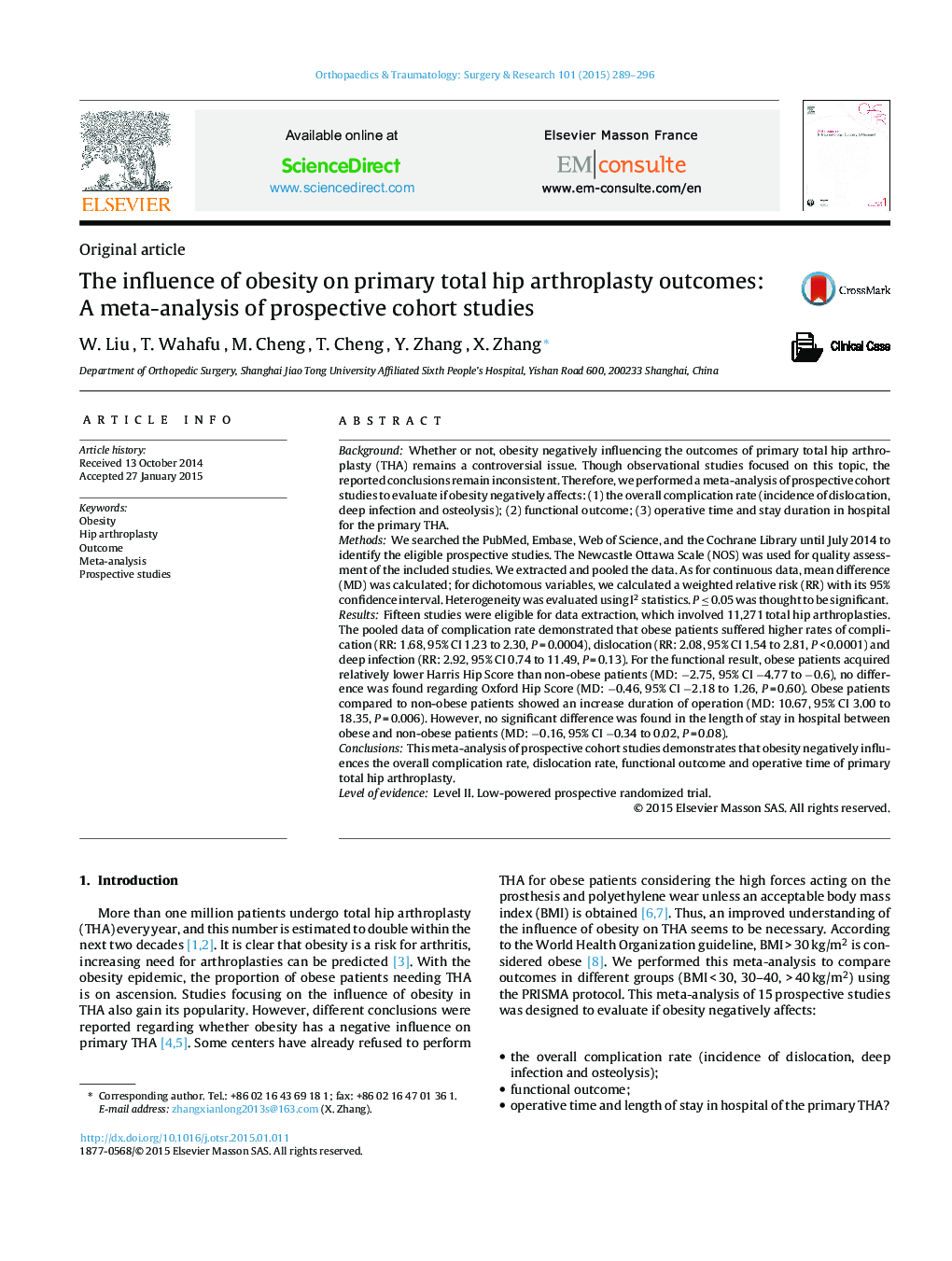| Article ID | Journal | Published Year | Pages | File Type |
|---|---|---|---|---|
| 4081170 | Orthopaedics & Traumatology: Surgery & Research | 2015 | 8 Pages |
BackgroundWhether or not, obesity negatively influencing the outcomes of primary total hip arthroplasty (THA) remains a controversial issue. Though observational studies focused on this topic, the reported conclusions remain inconsistent. Therefore, we performed a meta-analysis of prospective cohort studies to evaluate if obesity negatively affects: (1) the overall complication rate (incidence of dislocation, deep infection and osteolysis); (2) functional outcome; (3) operative time and stay duration in hospital for the primary THA.MethodsWe searched the PubMed, Embase, Web of Science, and the Cochrane Library until July 2014 to identify the eligible prospective studies. The Newcastle Ottawa Scale (NOS) was used for quality assessment of the included studies. We extracted and pooled the data. As for continuous data, mean difference (MD) was calculated; for dichotomous variables, we calculated a weighted relative risk (RR) with its 95% confidence interval. Heterogeneity was evaluated using I2 statistics. P ≤ 0.05 was thought to be significant.ResultsFifteen studies were eligible for data extraction, which involved 11,271 total hip arthroplasties. The pooled data of complication rate demonstrated that obese patients suffered higher rates of complication (RR: 1.68, 95% CI 1.23 to 2.30, P = 0.0004), dislocation (RR: 2.08, 95% CI 1.54 to 2.81, P < 0.0001) and deep infection (RR: 2.92, 95% CI 0.74 to 11.49, P = 0.13). For the functional result, obese patients acquired relatively lower Harris Hip Score than non-obese patients (MD: −2.75, 95% CI −4.77 to −0.6), no difference was found regarding Oxford Hip Score (MD: −0.46, 95% CI −2.18 to 1.26, P = 0.60). Obese patients compared to non-obese patients showed an increase duration of operation (MD: 10.67, 95% CI 3.00 to 18.35, P = 0.006). However, no significant difference was found in the length of stay in hospital between obese and non-obese patients (MD: −0.16, 95% CI −0.34 to 0.02, P = 0.08).ConclusionsThis meta-analysis of prospective cohort studies demonstrates that obesity negatively influences the overall complication rate, dislocation rate, functional outcome and operative time of primary total hip arthroplasty.Level of evidenceLevel II. Low-powered prospective randomized trial.
